In response to President Xi Jinping’s “Global Civilization Initiative” and to advance the construction of a community with a shared future for mankind and the “Belt and Road” Initiative, the Global Civilization Forum hosted by Beijing Foreign Studies University was grandly held on September 16, 2023. The sub-forum titled “Global Education Governance, Educational Equity, and the Future of Education,” organized by Gradate School of Education(GSE), took place in the Morning Reading Hall of the East Campus of Beijing Foreign Studies University. Concurrently, the launch ceremony for the new book Global Education Governance Strategy, led by Prof. Wang Dinghua, was held. Experts and scholars from Peking University, Beijing Normal University, the University of Hong Kong, the National Autonomous University of Mexico, the China Association of Higher Education, the Educational Science Publishing House, and the School of International Studies and GSE at Beijing Foreign Studies University delivered special reports. Nearly 100 faculty, students, alumni, and faculty from sister institutions attended the event.
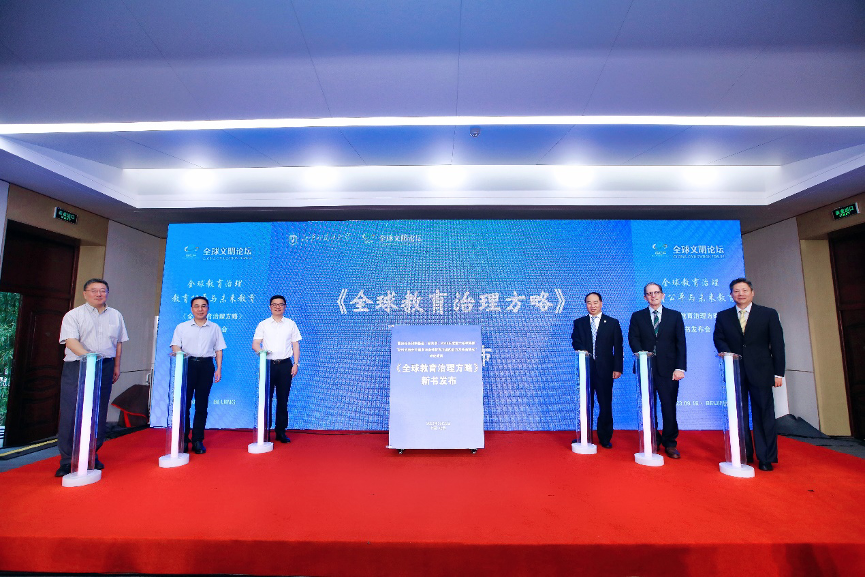
Launch of the book Global Education Governance Strategy
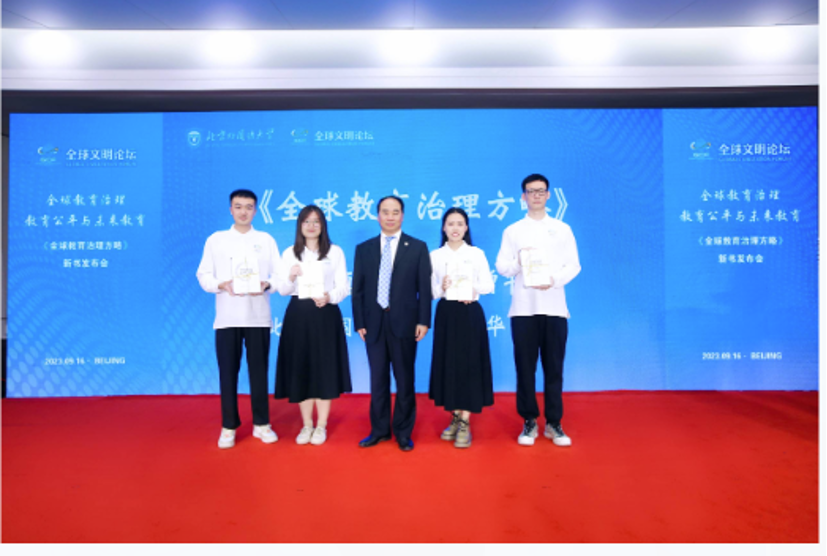
Prof. Wang Dinghua presented copies of the book to students
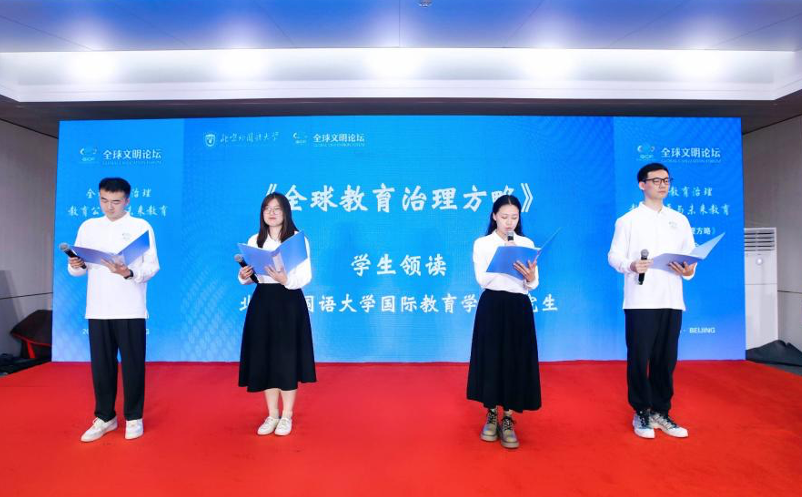
A student representative from GSE led the reading
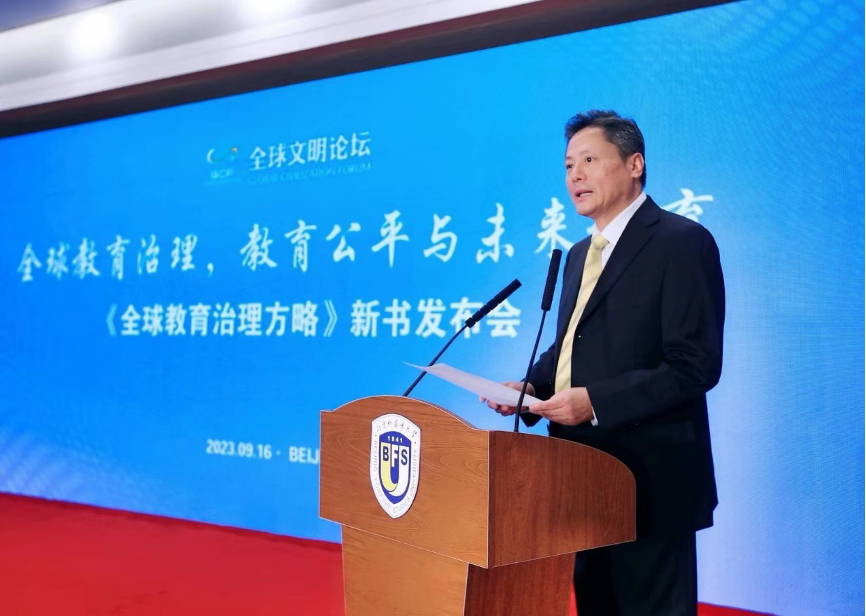
Prof. Qin Huimin, the dean of GSE, chaired the forum and delivered opening remarks
Prof. Qin Huimin, the dean of GSE, chaired the forum and delivered a welcome address. He pointed out that the world is currently undergoing unprecedented changes, facing a period of great development, transformation, and adjustment. Education is an important component of human civilization. We must follow the instructions of President Xi Jinping, adapt to the evolving international landscape, refine our strategies for educational openness, actively participate in global education governance, and remain committed to expanding educational openness. Beijing Foreign Studies University is advancing the construction of a world-class university serving global civilizational exchange. Within this framework, GSE is promoting teaching, research, and disciplinary development in the global education field. We must grasp the new trends in global education development, stride confidently into new endeavors, and strive vigorously toward the future.
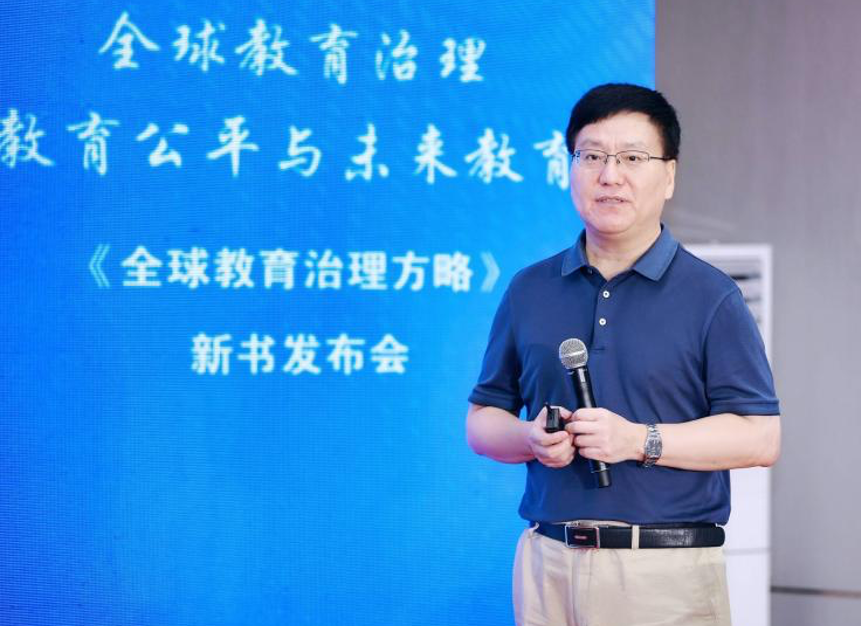
Prof. Chu Hongqi from Beijing Normal University delivered a report
Prof. Chu Hongqi from Beijing Normal University addressed some issues in education governance theory and practice, sharing his insights and understanding. He proposed a logical framework for educational governance based on co-governance, self-governance, meta-governance, and rule of law, with a greater focus on the micro level of educational governance. He emphasized expanding the equal participation of diverse stakeholders such as teachers and students, and achieving good governance through democratic consultation and compromise. He argued that the government plays a meta-governance role in educational governance and bears corresponding responsibilities, stressing the need to improve macro-level government management and address issues such as streamlining administrative procedures, combining deregulation with improved oversight, and the construction of modern school systems.
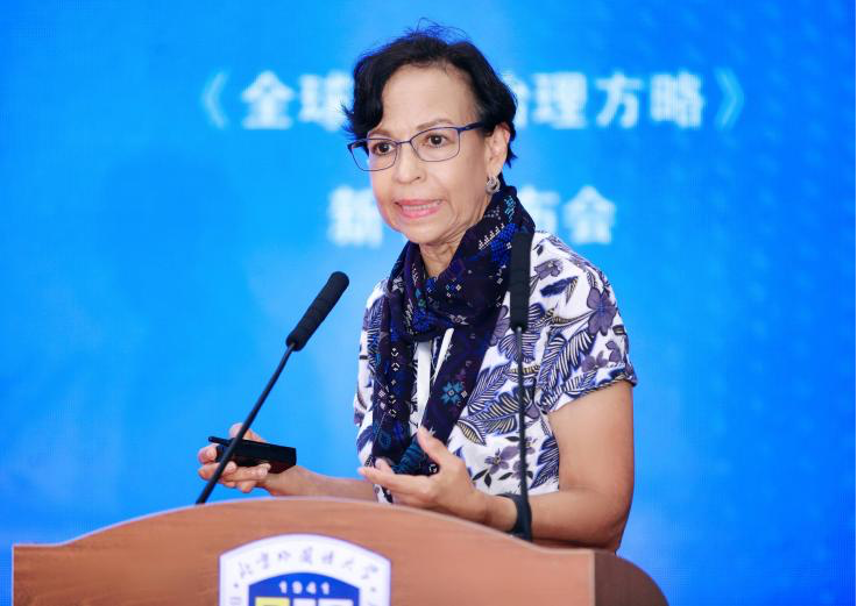
Prof. María del Carmen Contijoch Escontria, National Autonomous University of Mexico
Prof. María del Carmen Contijoch Escontria, the dean of the School of Languages and Linguistics Translation at the National Autonomous University of Mexico, stated that artificial intelligence should be utilized as a means to achieve educational equity. Artificial intelligence opens up possibilities for discussing topics such as fairness, justice, diversity, and inclusion. The National Autonomous University of Mexico provides inclusive education for people with disabilities by actively offering basic technical infrastructure. She believes that artificial intelligence can assist people with disabilities in various ways and also drive progress within the university community. Language learning and multilingual learning should be viewed as bridges connecting cultures.
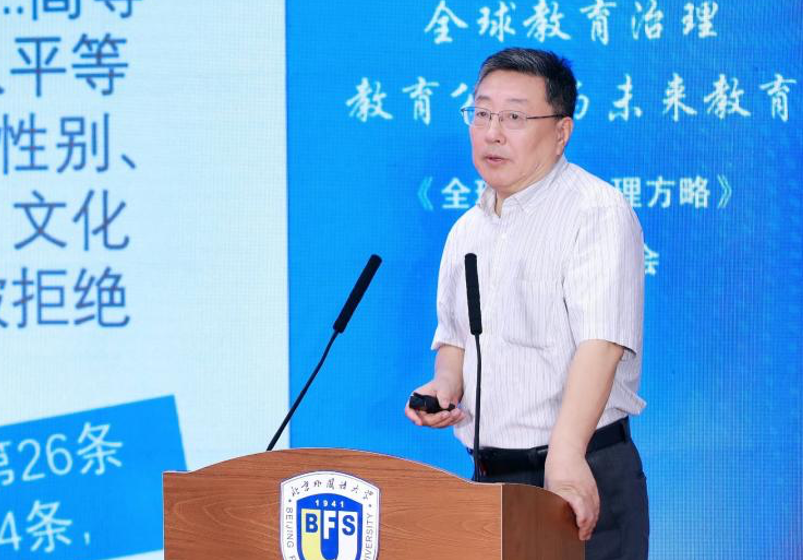
Prof. Shi Xiaoguang, Peking University
Prof. Shi Xiaoguang from the Graduate School of Education at Peking University discussed educational equity in the “digital intelligence era.” He pointed out that with the advent of the Fourth Industrial Revolution and the global knowledge-based economy, human society has entered a new “digital intelligence era.” New technologies such as the Internet of Things and artificial intelligence have had a significant impact on traditional production and lifestyles, presenting unprecedented challenges and opportunities for educational reform. Educational equity is an enduring and timeless issue, and it is also a problem that global educational governance modernization must confront and resolve. Efforts should be accelerated to promote the informatization and intelligent transformation of underdeveloped regions to advance educational equity.
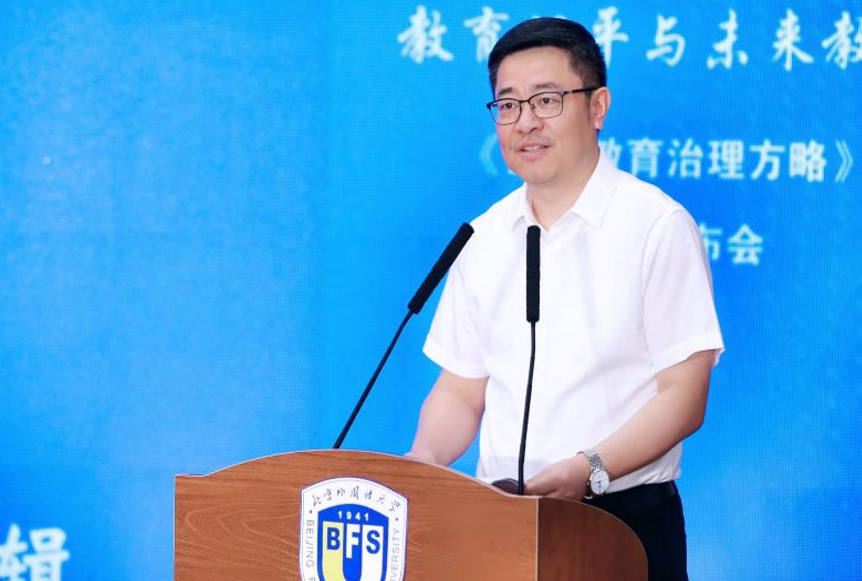
Zheng Haojie, President of the Educational Science Publishing House
Zheng Haojie, president and editor-in-chief of the Educational Science Publishing House, extended warm congratulations on behalf of the press to Prof. Wang Dinghua and the research team. He noted that this work possesses distinct contemporary characteristics, a broad intellectual perspective, and profound Chinese insights. It is dedicated to interpreting and promoting China’s new concepts, strategies, measures, and achievements in global education governance, with the vision of building a community with a shared future for mankind as its ideological foundation. It outlines a Chinese blueprint for global education governance research, proposes a research framework for global education governance that reflects Chinese characteristics and experiences, and provides valuable references for China’s participation in global education governance research and practice.
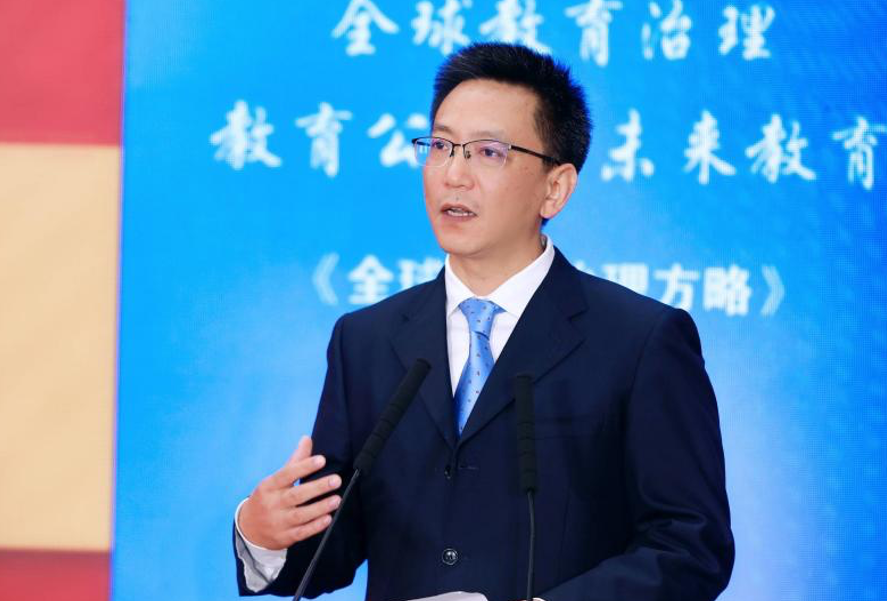
Prof. Xie Tao, Beijing Foreign Studies University
Prof.Xie Tao, the dean of the School of International Studies, delivered a speech titled “China’s Solution to Global Governance: Security, Development, and Civilization”. He pointed out that in the new era of global governance, China has put forward three major initiatives and practiced the concept of global governance based on consultation, cooperation, and shared benefits. He outlined the internal logic of China’s solution and emphasized that participating in global education governance is the inevitable path for China to transit from a great country in education to a leading country in education.
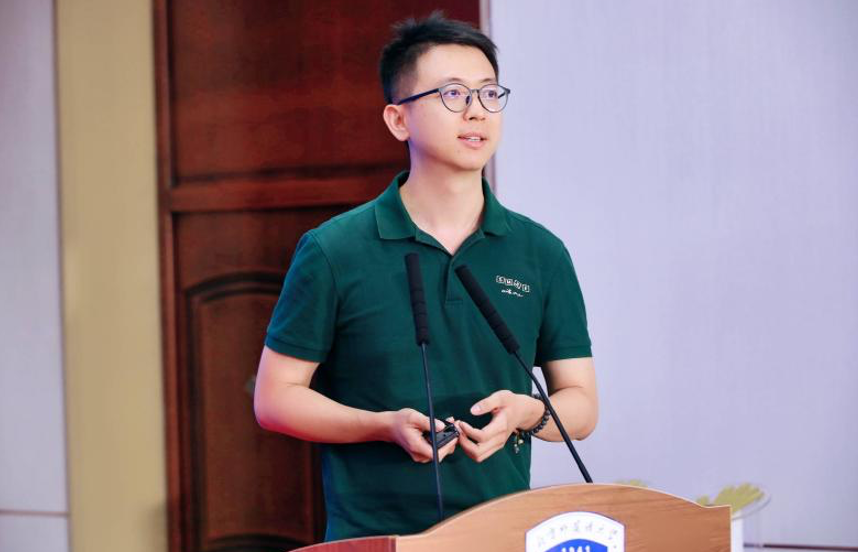
Associate Professor Wu Rui, Beijing Foreign Studies University
Associate Professor Wu Rui from GSE explained the book’s insights on global education governance, highlighting the promotion of practical achievements in global education governance, such as innovative talent cultivation models and emphasizing the cultivation of humanities and social sciences literacy in higher education; promoting publications, such as the “Belt and Road” Countries’ Cultural and Educational Series; establishing research centers, such as the Global Education Governance Research Center; and offering graduate courses such as “Introduction to Global Education Governance” and “Special Topics in Global Education Governance”.
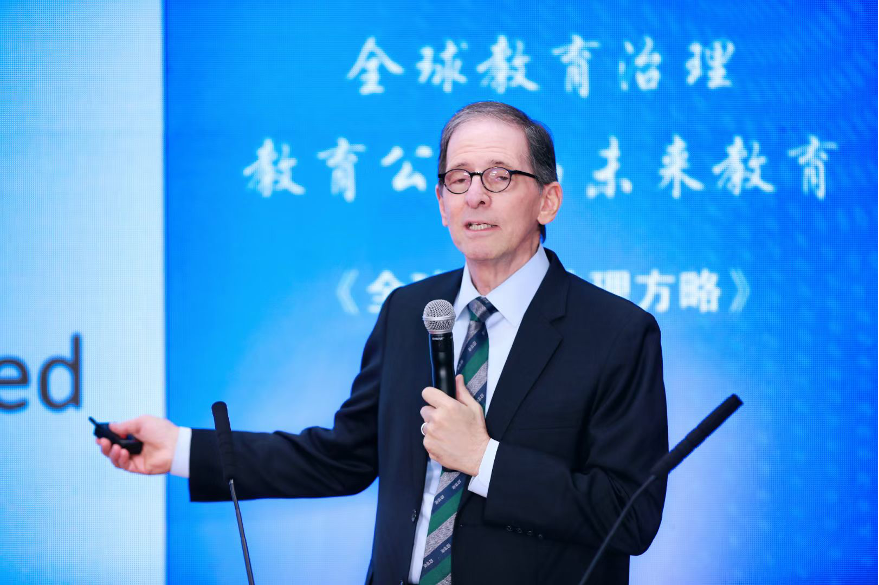
Prof. Gerard Postiglione, University of Hong Kong
Prof. Gerard Postiglione, a fellow of the American Educational Research Association and deputy dean of the Faculty of Education at the University of Hong Kong, delivered a report titled “Globalization, Deglobalization, Reglobalization, and New Globalization in Higher Education”. He noted that prior to 2020, the globalized world was moving toward interconnectedness, interdependence, and wealth creation, but it has since been impacted by the COVID-19 pandemic, economic slowdown, and the breakdown of the geopolitical order. Deglobalization has exacerbated global disorder, asymmetry, and the fragmentation of competition and cooperation among multiple centers. The future of the world will depend more than ever on continuing to expand higher education in terms of skills, equity, and innovation. The world will ultimately enter a new era of higher education globalization, which will bring broader prosperity, greater income and wealth equality, and extensive cultural exchange based on global common interests.
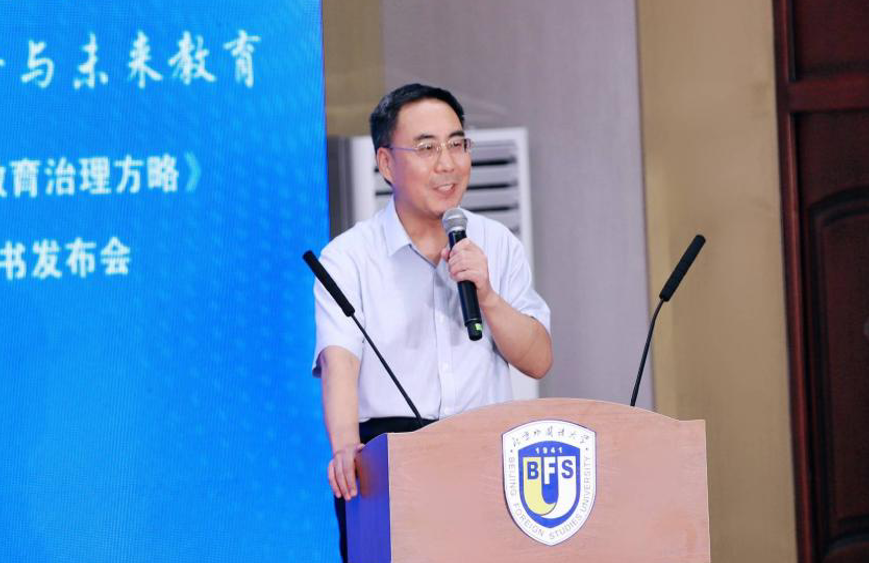
Researcher Hao Qingjie, China Association of Higher Education
Researcher Hao Qingjie, the deputy secretary-general of the China Association of Higher Education, noted in his report that “convergence is the overarching trend.” Scientists and thinkers from different disciplines, while employing vastly different theoretical methods in their research on specific issues, often share many convergent ideas and perspectives, reflecting a shared consensus on the direction of human development. This trend of convergence is widely observed across both natural and social sciences.
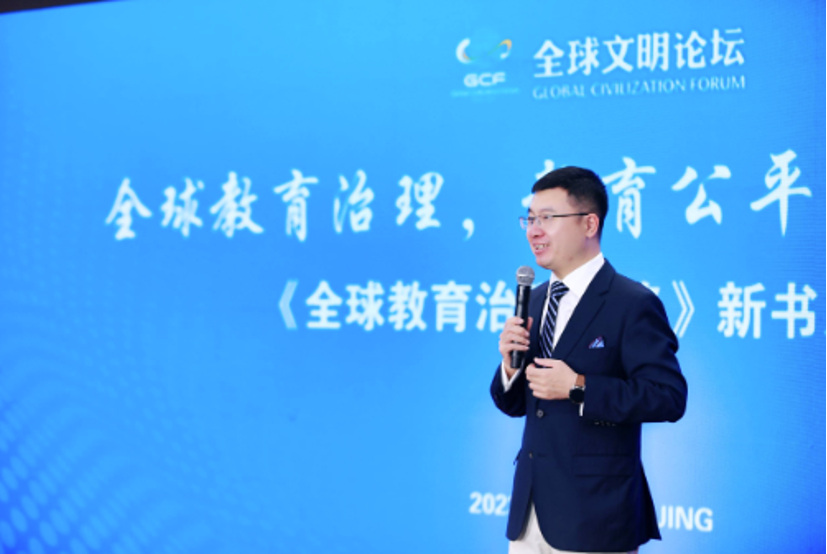
Vice Dean Yuan Dayong Hosts New Book Launch
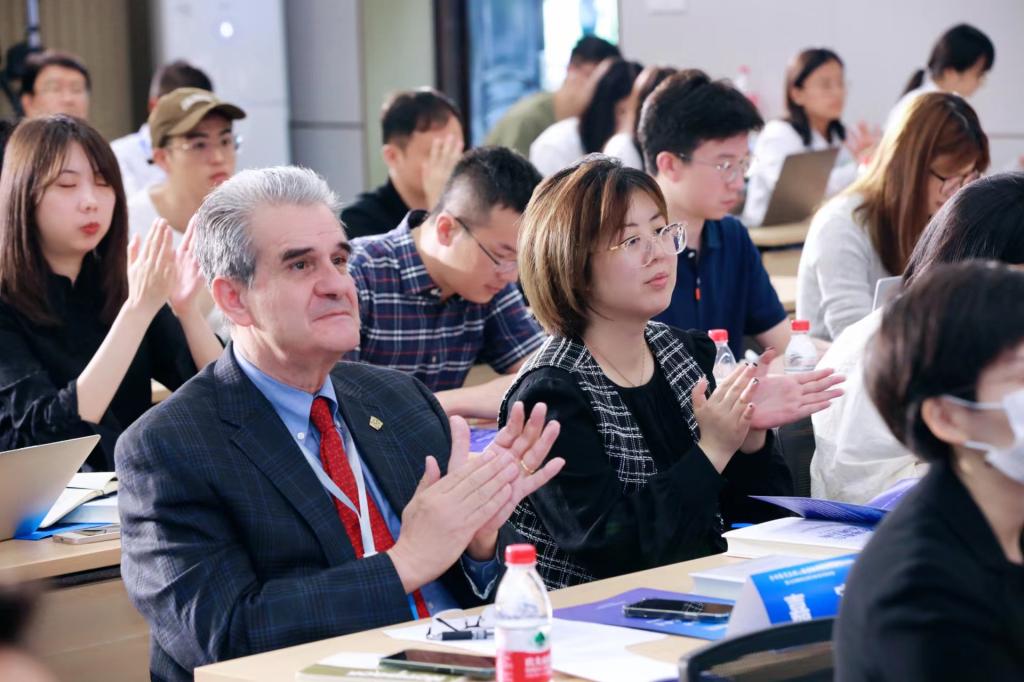
This forum’s in-depth discussions hold significant importance for understanding the essence and future trends of global education governance, educational equity, and future education. It represents BFSU’s proactive response to the “Global Civilization Initiative”. BFSU actively participates in global civilizational exchanges, striving to contribute to China’s transformation from a great country in education to a leading country in education, and to advance toward the global stage with a more open and confident posture.